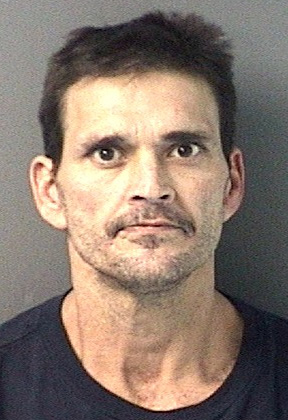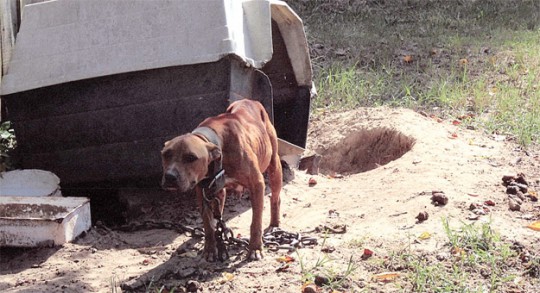Billy Lassiter
March 13, 2013
Billy Lassiter, 65, of Atmore, passed away Monday, March 11, 2013, in Pensacola. He was retired as a pipe inspector. He was born in Evergreen, on March 27, 1947, to the late Willie J. and Mazie Thompson Lassiter. He was a United States Army Veteran.
He is preceded in death by his wife, Barbara Faye Lassiter and one brother, Robert Holley.
He is survived by two sons, Shawn Lassiter (Hope) and Shannon Lassiter, both of Atmore; special sister-in-law, Judy Smith of Atmore; three brothers, Larry Lassiter, Michael Lassiter and Steve Thompson, all of Atmore; and two sisters, Sheila Dalton of Pittsburg, PA, Linda Griggers of Atmore; and four grandchildren, Natalie Lassiter, Sydnie Lassiter, Ragan Lassiter and Paige Lassiter.
Services will be Thursday, March 14, 2013, at 10 a.m. from Johnson-Quimby Funeral Home Chapel with Rev. Don Davis officiating. Interment will follow in Oak Hill cemetery with military honors.
Active pallbearers will be Brandon Carlton, Blake Lassiter, Dean Fournier, Randall Ward, Toby Quimby and Brandon Smith.
Family will receive friends Wednesday, March 13, 2013, at Johnson-Quimby Funeral Home from 5:30 p.m. until 8 p.m.
Johnson-Quimby Funeral Home is in charge of all arrangements.
Fire Destroys Detached Garage
March 12, 2013
 Fire destroyed a detached garage at a home near Barrineau Park early this morning.
Fire destroyed a detached garage at a home near Barrineau Park early this morning.
The fire was reported about 2:15 a.m. in the 4000 block of Schifko Road, just north of Noir Lane. The detached garage, just over 1,000 square feet in size, was fully involved when the first firefighters arrived on scene. The fire was declared under control about 2:55 a.m.
There were no injuries reported. The exact cause of the fire is under investigation by the Florida State Fire Marshal’s Office.
The Molino, Cantonment, McDavid, Ensley and Beulah stations of Escambia Fire Rescue and Escambia County EMS responded to the scene.
Pictured above and below Fire destroyed a large detached garage near Barrineau Park early Tuesday morning. Pictured inset: A vehicle burns along with the garage. NorthEscambia.com photos by Kristi Smith, click to enlarge.
Molino Woman Gets Probation For Animal Abuse (With Case Photos)
March 12, 2013
A Molino woman was sentenced Monday to the same fate as her husband on multiple animal cruelty charged for chaining malnourished pit bulls in their own filth in the family’s backyard.
 Amanda Leah Oswald, 34, was sentenced by Judge Gary Bergosh to 36 months probation and 50 hours of community service at the Escambia County Animal Shelter. She is also forbidden from possessing dogs during her probation.
Amanda Leah Oswald, 34, was sentenced by Judge Gary Bergosh to 36 months probation and 50 hours of community service at the Escambia County Animal Shelter. She is also forbidden from possessing dogs during her probation.
Last month, her husband, 30 year old John Roland Oswald, received the same sentence from Bergosh for animal cruelty and a drug charge that stemmed from marijuana plants found at his home.
Both sentences were less than recommended by prosecutors.
For more photos from the scene, click here. — WARNING: Some readers may find the photos disturbing.
“We recommended both defendants receive 11 months and 15 days in jail in addition to a lengthy probation. We felt that would be an appropriate sentence in view of the nature of the evidence,” State Attorney Bill Eddins said Monday afternoon. “Our office has and will continue to take a strong stance in animal abuse cases, and we will continue to vigorously prosecute them.”
Escambia County deputies responded to a complaint about an aggressive pit bull on September 21, 2012, at a residence in on Highway 29 near Cotton Lake Road. The dog was loose in the victim’s yard and had attacked and killed her dog. Deputies kept the pit bull contained in the yard and notified Escambia County Animal Control. But before animal control arrived, the pit bull attempted to attack two officers who then utilized a shotgun to stop the dog, according to the Escambia County Sheriff’s Office.
Neighbors told deputies the dog belonged to the Oswalds. When deputies attempted to contact them at a nearby home on Highway 29 across from the Camp Of the Pines, deputies and animal control located two other pit bulls in the backyard of the home.
 “I first observed a very skinny brown pit bill dog tied to a large chain barking at me,” one deputy wrote in his report. “I then observed a very skinny black pit bull dog lying on its side, and it appeared to be dead…I observed the black dog lift its head and look at me though due to the dog being so skinny from lack of food, the dog could not stand up.”
“I first observed a very skinny brown pit bill dog tied to a large chain barking at me,” one deputy wrote in his report. “I then observed a very skinny black pit bull dog lying on its side, and it appeared to be dead…I observed the black dog lift its head and look at me though due to the dog being so skinny from lack of food, the dog could not stand up.”
Both dogs were “malnourished to the point of starvation”, according to an arrest report, with access to “old nasty water” and no food. Both dogs were tied to heavy chains and were surrounded by flies.
“I then observed the black pit bull who was still lying on his side struggle and make several attempts to stand to his feet. “Once on his feet, his legs were wobbly and looked like he was going to fall over,” the deputy said.
The deputy said in his report that he first though the black dog was covered in ants crawling all over it, but it was actually a “massive amount” of fleas. The dog also reportedly had an eye infection.
 The two pit bulls were seized by animal control. Amanda Oswald also voluntarily surrendered a pit bull and three Yorkie dogs from inside the residence to Escambia County Animal Control.
The two pit bulls were seized by animal control. Amanda Oswald also voluntarily surrendered a pit bull and three Yorkie dogs from inside the residence to Escambia County Animal Control.
John Oswald was also charged with one felony count of producing marijuana. During the animal cruelty investigation, deputies reported the discovery of four marijuana plants up to five feet tall and one plant growing in a bucket in the home’s backyard.
Oswald met with a narcotics investigator and admitted that the marijuana plants belonged to him, an arrest report states. “He admitted to having a pill problem prior to being involved in marijuana and that he had started growing marijuana for personal use,” the investigator wrote in his report.
Escambia County Code Enforcement also responded to the home and opened a separate investigation for various code violations.
For more photos from the scene, click here. — WARNING: Some readers may find the photos disturbing.
Pictured: Photos from the Molino area backyard of John and Amanda Oswald. Photos courtesy the State Attorney’s Office for NorthEscambia.com, click to enlarge.
Renovations Scheduled For Tate Locker Rooms
March 12, 2013
Locker rooms at Tate High School area scheduled to be renovated.
The Escambia County School Board is set to award a $659,500 contract to low bidder Hewes and Company, LLC. at the board’s next meeting on March 19. The renovations will be funded with half cent sales tax funds.
Four other bids on the project ranged from $729,000 from Jack Moore and Co. to a high of $804,000 from Larry Hall Construction, Inc.
Bridge Maintenance Today on I-10 At Nine Mile Road
March 12, 2013
Crews will perform routine bridge maintenance on I-10 over West Nine Mile Road in Beulah today. Westbound traffic will encounter lane restrictions between 9 a.m. and 2 p.m.
Maintenance activities are weather dependent and may be delayed or re-scheduled in the event of inclement weather. Motorists are reminded to travel with care through the work zone and to watch for construction equipment and workers entering and exiting the roadway, according to the Florida Department of Transportation.
Gulf Spill Money Reaches Escambia County, Waiting Game For Others
March 12, 2013
The Florida Department of Environmental Protection expects to have a list of desired restoration and conservation projects in place this summer for its share of the money from the BP oil spill disaster.
As part of a $1 billion agreement signed by the five state National Resource Damage Assessment Project Trustees and BP in April 2011, $100 million was designated to Florida.
So far, the state has been able to use $11.4 million for four boat ramps and a dune restoration project in Escambia County and a pair of coastal conservation projects — nesting bird and sea turtle habitat – along the Panhandle.
When the federal pipeline for additional money to reach the state and local governments will be turned on remains unknown.
The state must wait for the U.S. Treasury to establish a list of regulations on how the Restore Act and other money from BP and Transocean settlements are distributed, said Mimi Drew, special advisor to DEP Secretary Herschel Vinyard.
“We’re reading the law, but we don’t have the rules,” Drew said.
The money is separate from the more than $1.7 billion that the BP-backed claims paying agency has paid out since last summer, of which about $332 million has gone to individuals and businesses in Florida.
The state continues to see tar balls wash ashore on Panhandle beaches and recorded a drop in Gulf fishing. There also was a decline in beach tourism, with a drop in reservations from the April 2010 disaster.
State officials have been holding listening sessions along the Gulf Coast to get local input for conservation and restoration projects. Public meetings on the plan will be scheduled later this spring.
“Right now we’re just talking about the kind of projects we’ll be funding, but we hope to have a draft plan in about a month or two,” Drew said after appearing Monday before the Senate Agriculture Committee.
Through the Restore Act, the state expects Florida counties will receive $56 million, with the governor getting to direct a share of $240 million heading to the Gulf Coast Ecosystem Restoration Council.
“We are concentrating on trying to restore what we call the loss of human use,” Drew said. “They have to have a direct connection to the spill. You have to prove that the project offsets the damage from the spill.”
By The News Service of Florida
Century Man Arrested For Drugs At Pensacola Motel
March 12, 2013
A Century man was charged with cocaine possession after being removed from a Pensacola motel.
 Dallas Monroe Edwards, 41, was charged with felony cocaine possession and resisting an officer without violence at the Executive Motel on Pensacola Boulevard.
Dallas Monroe Edwards, 41, was charged with felony cocaine possession and resisting an officer without violence at the Executive Motel on Pensacola Boulevard.
Motel management called deputies to have a room vacated because the occupants did not pay a required pet fee. Deputies reported finding a small black tube with two baggies of a substance that field tested positive for cocaine in Edwards’ pocket. Once deputies found the tube, Edwards broke free and attempted to run.
Deputies gave chase and Edwards was taken into custody without further incident.
Edwards was released from the Escambia County Jail on a $6,000 bond.
Learn How To Do Business With ECUA
March 12, 2013
On Friday, the Florida Small Business Development Center with the UWF Procurement Technical Assistance Center Program, will offer a free workshop entitled, “How to do Business with the Emerald Coast Utilities Authority” (ECUA).
The informational meeting will educate attendees about the potential of doing business with the ECUA, while increasing participation in obtaining future ECUA contracts. Participants will learn about the bidding process, qualification requirements, future business opportunities, and how the ECUA hiring process is conducted.
ECUA speakers will include Bill Johnson, director of engineering, Peter Wilkinson, purchasing and store manager, and Frances Webb, HR generalist.
The event will be held in Pensacola at 401 East Chase Street, Suite 100, from 9 a.m. until noon.
The workshop is free; however, pre-registration is recommended. For additional information contact, Laura Subel, PTAC procurement specialist, lsubel@uwf.edu (850) 595-0089 or register online at clientsfloridasbdc.org/center.
Save Over Half On Groceries? Learn To Be A Coupon Queen (Or King)
March 12, 2013
 Area residents can learn to be a coupon queens (or kings) at a class this weekend in McDavid.
Area residents can learn to be a coupon queens (or kings) at a class this weekend in McDavid.
“I have been couponing for years,” said Science of Couponing Class teacher Candace Capps. “I am no extreme couponer but have saved normally between 60 and 70 percent on my stuff.”
The class will be held from 10 a.m. until 1 p.m. on Saturday at Rays Chapel Baptist Church. The cost is $10 per person, with childcare available for $5. Proceeds benefit church mission trips.
For more details or to sign up, call Candace Capps at (850) 554-0683 or register on Facebook.
Pictured: Science of Couponing Class teacher Candace Capps saved $159.60 – almost 70 percent — on a recent grocery shopping trip. Submitted photos for NorthEscambia.com, click to enlarge.
Florida Senate Panel Reject Medicaid Expansion, Looks At Option
March 12, 2013
With some Republicans saying they didn’t want to expand a “broken” system, a Senate select committee Monday rejected adding hundreds of thousands of Floridians to the Medicaid program under the federal Affordable Care Act.
Senators, however, said they want to pursue an alternative plan that would use federal money to help uninsured low-income people get coverage through private insurers. The select committee’s vote came a week after a House panel also rejected the Medicaid expansion — despite Gov. Rick Scott’s support for the idea.
“I oppose the Washington plan, and I want a Florida plan,” said Sen. Joe Negron, a Stuart Republican who is chairman of the select committee and presented the alternative. “I think we have an opportunity to build a better program than what Washington is trying to force on us.”
The committee rejected the expansion in a 7-4 vote along party lines. Democrats said the Affordable Care Act, sometimes called Obamacare, offered a chance to help hundreds of thousands of people get health coverage.
“We have a moral and economic responsibility to seize this moment for the good of Floridians,” said Sen. Eleanor Sobel, a Hollywood Democrat and vice-chairwoman of the select committee.
The chances of the Republican-dominated Legislature approving the Medicaid expansion dimmed last week when House Speaker Will Weatherford, R-Wesley Chapel, and a House select committee publicly opposed it. But senators had not taken a formal position until Monday’s vote.
Weatherford issued a statement praising the Senate move and vowing to work on seeking other options for offering health coverage to the state’s uninsured. The House speaker, in part, has questioned the future expense to the state of a Medicaid expansion — though the federal government says it will pay all of the expansion costs during the first three years.
“I look forward to working with Senate President (Don) Gaetz as we investigate alternatives that will strengthen the safety net while also ensuring that we do not put future funding for our schools, public safety and protection of our beaches and springs at risk,” Weatherford said.
Scott, whose support of Medicaid expansion was harshly criticized by some conservative supporters, issued a brief statement saying he is “confident that the Legislature will do the right thing and find a way to protect taxpayers and the uninsured in our state while the new health-care law provides 100 percent federal funding.”
The Affordable Care Act, which President Obama and congressional Democrats approved in 2010, calls for expanding Medicaid eligibility as a key part of its goal to provide health coverage to most Americans. The law would allow enrollment of people whose incomes are up to 138 percent of the federal poverty level and, in a major change for Florida, allow enrollment of childless adults.
While the federal government would pay 100 percent of the expansion costs during the first three years, its share would gradually drop to 90 percent in 2020, with the state picking up the rest of the tab. Analysts last week estimated that the expansion would cost the state about $3.5 billion over a decade — with the federal government paying about $51 billion.
Numerous details still need to emerge about the possible alternative plan that Negron presented to the Senate select committee Monday. But broadly, it would create a voucher-like program for people to buy private health insurance.
The plan would target the same people who would be newly eligible under the Medicaid expansion and also would rely on federal money to help subsidize coverage. But instead of enrolling people in Medicaid, it would build on an already-existing program, the Florida Healthy Kids Corp., to offer coverage through private insurers.
Florida Healthy Kids provides subsidized private health-insurance to about 240,000 children of low- and moderate-income families, as part of the federal Children’s Health Insurance Program. Families pay $15 or $20 a month for coverage, with the state and federal governments subsidizing the rest of the costs.
Rich Robleto, executive director of Florida Health Kids, said the program’s structure could be broadened to also include the type of expansion discussed by the Senate select committee.
“It’s the kind of thing that we can do,” Robleto said. “It’s the kind of thing we have been doing for 20-something years.”
Florida lawmakers in 2011 approved a major overhaul of the Medicaid program that eventually will lead to almost all beneficiaries enrolling in HMOs and other types of managed-care plans. But the possible Obamacare alternative would be separate from that effort.
Negron said he will ask Gaetz, the Senate president, to send the possible alternative to another committee to work out details. But among the big questions are whether the federal government would go along with the concept and whether it would approve such moves as requiring enrollees to be charged co-payments for medical services — something Negron said he would like to see.
The Obama administration recently indicated it would allow Arkansas to funnel people into private coverage instead of Medicaid. But the Arkansas proposal, which has not been finalized, includes a crucial difference from the Senate idea: It would use health-insurance exchanges, which are part of the Affordable Care Act, to serve as the vehicle for people to sign up for private coverage.
Despite seeing Republicans vote down the Medicaid expansion, Senate Democrats issued a statement after Monday’s meeting that appeared to indicate support for the possible alternative. That statement noted that the alternative would also address many of the goals of the Medicaid expansion.
“Although Republicans voted against what they called ‘traditional Medicaid expansion’ they turned around and endorsed a program that still relies on the same federal dollars and still extends affordable health care to 1 million Floridians,” Senate Minority Leader Chris Smith, D-Fort Lauderdale, said. “Whatever name they opt to give the program, the bottom line is that money allocated by the federal government for Medicaid expansion will be the mechanism. In the Senate, the remaining question is no longer ‘if,’ but ‘who.’ ”
But Senate Republicans, who have long complained about the costs and size of Medicaid, sought during the meeting to distance themselves from a potential expansion of the program.
“I think fixing health care is not expanding a broken system,” said Senate Health Policy Chairman Aaron Bean, R-Fernandina Beach. “Medicaid … it’s not good.”
By The News Service of Florida








